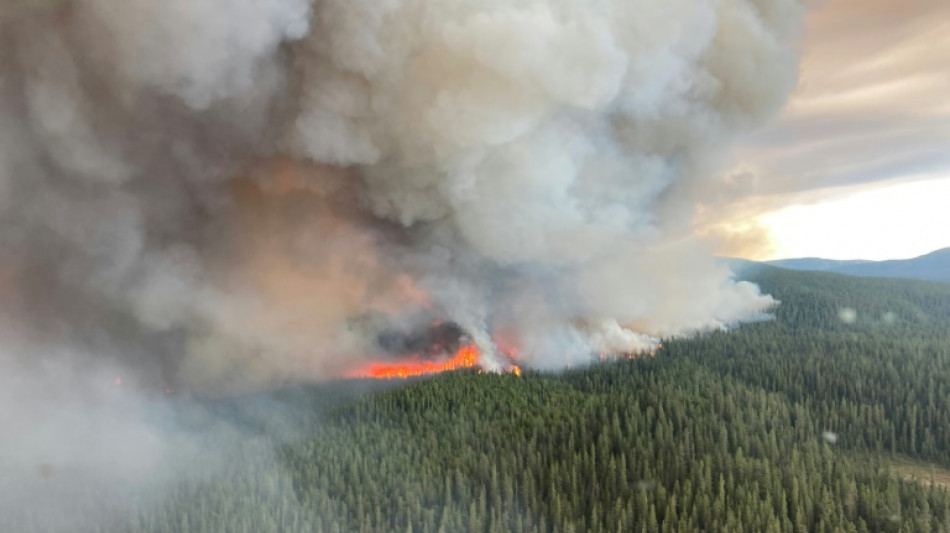

Helicopter pilot dies fighting Canadian wildfires
A pilot died in a helicopter crash in western Canada fighting wildfires that have ravaged the country, police said Thursday.
He is the third person to die battling the huge blazes after two firefighters were killed last week during separate operations.
His helicopter was reported missing early Wednesday evening, and the aircraft was later located near Haig Lake in northern Alberta province.
The aircraft "collided with terrain during firefighting operations," the country's Transportation Safety Board said, adding that the accident took place in a remote location.
TSB said it has opened an investigation.
Forestry workers performed CPR on the victim, who was the sole occupant of the helicopter, the province's Royal Canadian Mounted Police (RCMP) said in a statement.
The 41-year-old pilot was later transported to an airport where he was declared dead.
"I'm heartbroken to hear that another Canadian fighting wildfires has lost their life," Prime Minister Justin Trudeau tweeted.
"We'll never forget his service to his province and to our country," he wrote.
More than 11 million hectares (27 million acres) have already burned this year, which is ten times the national average, Environment Minister Steven Guilbeault said during an update on the state of the fires.
More than 880 fires were active in Canada on Thursday (with 13 new blazes declared during the day). Among them 546 were burning out of control.
The fires are mainly engulfing boreal forest far from inhabited areas, meaning there is little immediate risk to humans, but there are major consequences for the environment.
Canada, which is warming faster than the rest of the planet because of its geography, has been confronted with extreme weather events whose intensity and frequency have increased due to climate change.
O.M.Jacobs--JdB



